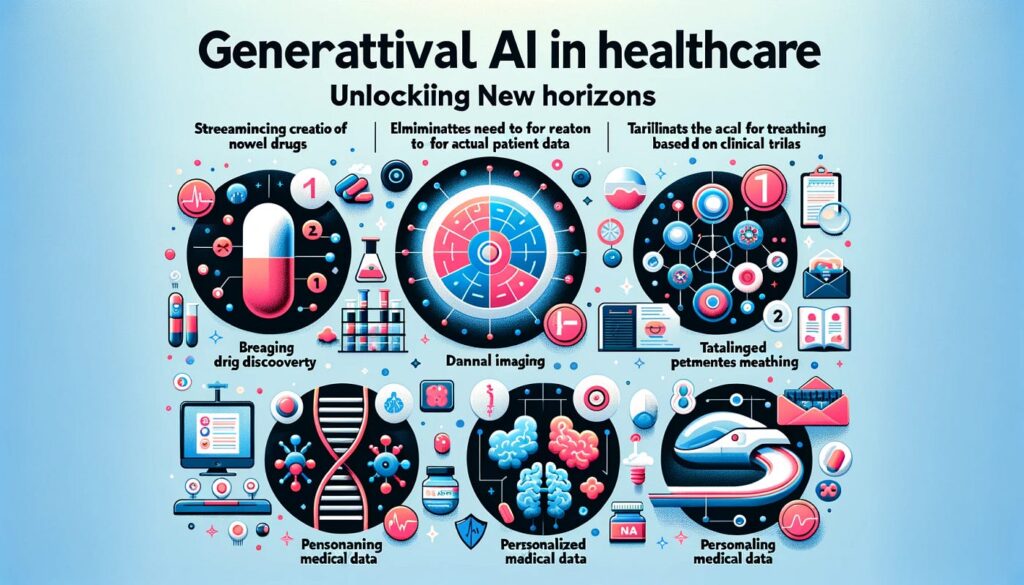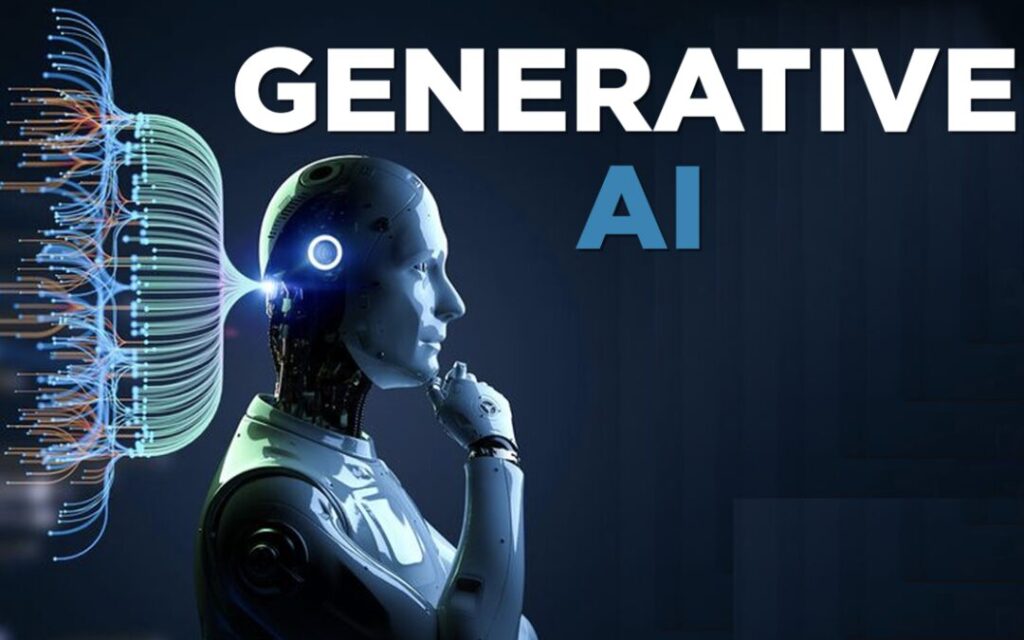Generative AI in Healthcare: In recent years, the healthcare industry has witnessed remarkable advancements in artificial intelligence (AI) technologies. Among these, generative AI stands out as a powerful tool with immense potential to revolutionize various aspects of healthcare delivery. Generative AI, a subset of AI that focuses on creating new data or content, holds promise for applications ranging from medical imaging to drug discovery. In this blog post, we’ll delve into the concept of generative AI in healthcare, exploring its uses, benefits, and challenges.
Understanding Generative AI:
Generative AI refers to algorithms capable of generating new, synthetic data that closely resemble real data. Unlike traditional AI models that rely on labeled datasets for training, generative AI can produce novel outputs without direct supervision. This ability stems from techniques such as generative adversarial networks (GANs), variational autoencoders (VAEs), and autoregressive models.
Applications in Medical Imaging:
One of the most promising applications of generative AI in healthcare is in medical imaging. Medical imaging plays a crucial role in disease diagnosis and treatment planning, but acquiring labeled datasets for training deep learning models can be challenging due to privacy concerns and data scarcity. Generative AI addresses this issue by generating synthetic medical images that mimic real-world variations, enabling more robust model training.
Enhanced Medical Image Reconstruction:
Generative AI algorithms can improve the quality of medical image reconstruction, enhancing the clarity and detail of images obtained from techniques such as magnetic resonance imaging (MRI) and computed tomography (CT) scans. By generating high-fidelity images from limited data inputs, these algorithms enable better visualization of anatomical structures and abnormalities, leading to more accurate diagnoses.
Data Augmentation for Training Models:
Another use of generative AI in medical imaging is data augmentation. By generating synthetic images with various anatomical configurations, pathologies, and imaging artifacts, generative AI can expand the diversity of training datasets, improving the generalization ability of deep learning models. This approach helps mitigate overfitting and improves the performance of image classification and segmentation tasks.
Drug Discovery and Molecular Design:
In addition to medical imaging, generative AI holds promise for accelerating drug discovery and molecular design processes. Traditional drug development pipelines are time-consuming and costly, often requiring years of research and experimentation. Generative AI algorithms can expedite this process by generating novel molecular structures with desired properties, such as efficacy, selectivity, and safety profiles.
Virtual Screening and Compound Generation:
Generative AI models can be used for virtual screening of compound libraries, predicting the bioactivity and drug-likeness of candidate molecules. By generating diverse chemical structures and exploring vast chemical space, these algorithms identify potential drug candidates more efficiently than traditional methods. Moreover, generative AI facilitates the design of de novo molecules tailored to specific therapeutic targets, accelerating the discovery of novel treatments.
Challenges and Considerations:
Despite its potential, the widespread adoption of generative AI in healthcare faces several challenges and considerations.
Data Quality and Bias: The performance of generative AI models heavily depends on the quality and diversity of training data. Biases present in the training data can propagate into generated outputs, leading to unintended consequences and disparities in healthcare outcomes.
Ethical and Regulatory Concerns: The use of generative AI raises ethical concerns related to patient privacy, informed consent, and the responsible use of synthetic data. Regulatory frameworks must evolve to address these concerns and ensure the safe and ethical deployment of generative AI technologies in healthcare settings.
Interpretability and Trust: Generative AI models are often complex and difficult to interpret, posing challenges for clinicians in understanding and trusting their outputs. Efforts to improve the interpretability and transparency of these models are essential to foster trust and acceptance among healthcare professionals.
Also Read: What Is The Primary Advantage Of Using Generative AI In Content Creation In 2024 ?
Conclusion
Generative AI holds tremendous promise for transforming healthcare by enabling advancements in medical imaging, drug discovery, and molecular design. By generating synthetic data and content, these algorithms overcome challenges related to data scarcity, privacy, and cost, paving the way for more efficient and personalized healthcare solutions. However, the ethical, regulatory, and technical challenges associated with the use of generative AI must be carefully addressed to ensure its responsible and beneficial integration into clinical practice. As research and development in this field continue to progress, generative AI is poised to revolutionize the way we diagnose, treat, and prevent diseases, ultimately improving patient outcomes and enhancing the quality of healthcare delivery.
Latest Blog: Varshangalkku Shesham Review: A Heartwarming Friendship Journey Sparked by Second-Half Wit




My brother suggested I might like this blog He was totally right This post actually made my day You can not imagine simply how much time I had spent for this info Thanks